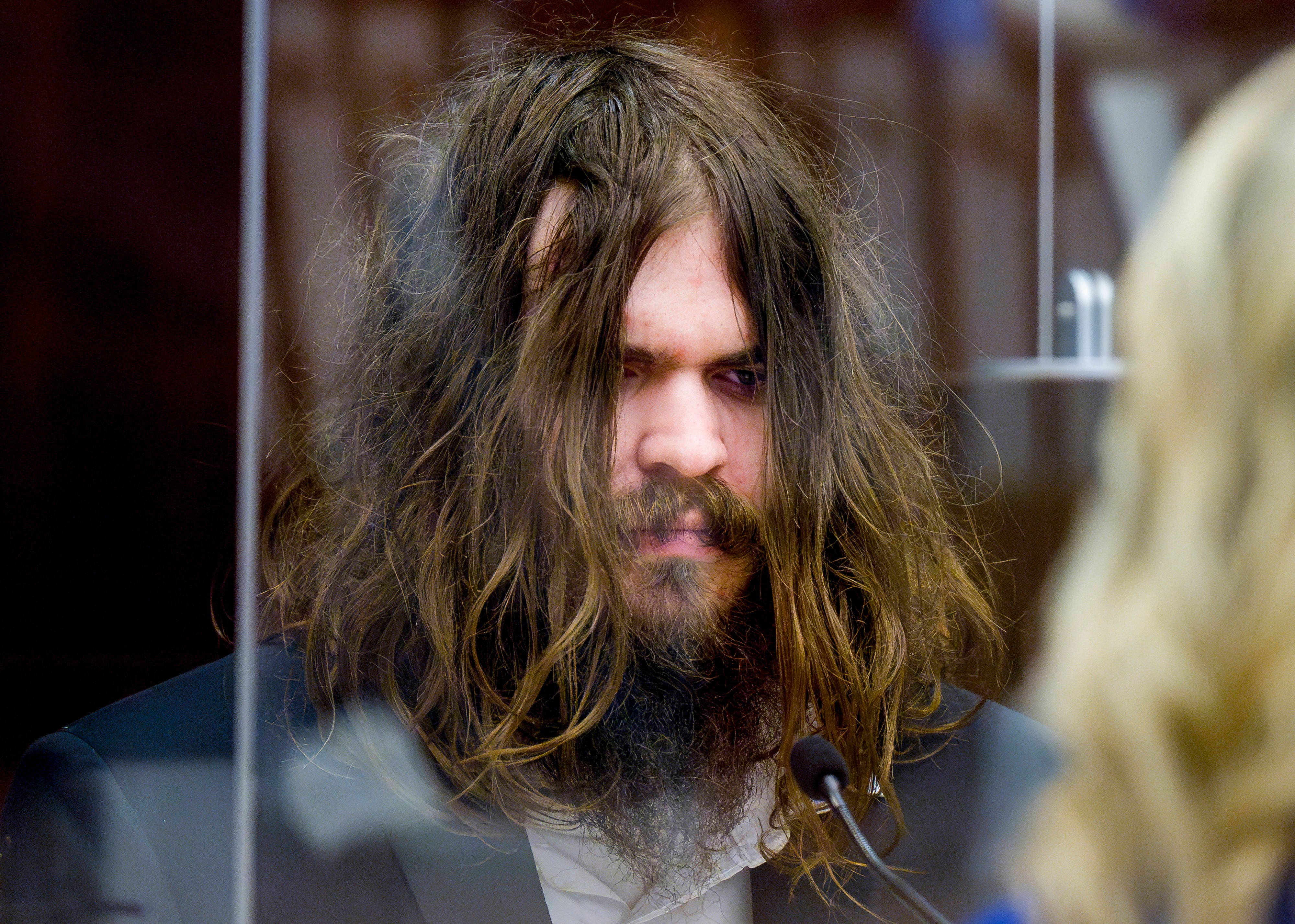California man charged with killing gay college student takes the stand
A California man charged with killing a gay University of Pennsylvania student in an alleged hate crime six years ago has taken the stand in his own trial

Your support helps us to tell the story
From reproductive rights to climate change to Big Tech, The Independent is on the ground when the story is developing. Whether it's investigating the financials of Elon Musk's pro-Trump PAC or producing our latest documentary, 'The A Word', which shines a light on the American women fighting for reproductive rights, we know how important it is to parse out the facts from the messaging.
At such a critical moment in US history, we need reporters on the ground. Your donation allows us to keep sending journalists to speak to both sides of the story.
The Independent is trusted by Americans across the entire political spectrum. And unlike many other quality news outlets, we choose not to lock Americans out of our reporting and analysis with paywalls. We believe quality journalism should be available to everyone, paid for by those who can afford it.
Your support makes all the difference.A California man charged with killing a gay University of Pennsylvania student in an alleged hate crime six years ago testified Tuesday about how the two men connected on social media and went to a park. It was the last time the victim was seen.
Samuel Woodward, 26, took the stand in his trial in an Orange County courtroom with long hair partly covering his face. His lawyer repeatedly asked him to push it aside so jurors could see him.
In response to questioning, Woodward told the court there were times in his life where he felt he didn't have friends and that virtually the only communication he had with other people was online. He acknowledged he matched with former high school classmate Blaze Bernstein on a dating app, and six months later, when the two reconnected, he told Bernstein it was awkward to be chatting since he came from a “conservative, Catholic family.”
“I had been looking for people for a long time to spend time with or talk to,” Woodward said during his third day testifying in his monthslong trial.
Woodward is charged with murder with an enhancement for a hate crime in the death of Bernstein, a 19-year-old gay Jewish college sophomore who was home visiting family in Southern California on winter break when he disappeared in 2018. Bernstein's body was found days later buried in a shallow grave in a nearby park.
The two men had connected online in the months before the attack, according to screenshots of their conversations shown during the trial.
Prosecutors said Woodward had joined the violent, anti-gay, antisemitic group known as Atomwaffen Division and repeatedly targeted gay men online by reaching out to them and then abruptly breaking off contact while keeping a hateful, profanity-laced journal of his actions. Prosecutors also said that Woodward showed an interest in moving from words to violent actions and that they found hate group materials among his belongings.
Defense attorney Ken Morrison didn't dispute that his client carried out the fatal attack, but said Woodward didn't plan to kill anyone and didn't hate Bernstein.
He said Woodward faced challenges in his personal relationships due to a long-undiagnosed autism spectrum disorder and was confused about his own sexuality after growing up in a politically conservative and devout Catholic family where his father openly criticized homosexuality.
During his testimony, Woodward acknowledged he had read excerpts of the book “Siege” — a text promoted by Atomwaffen Division —and had contacts with and met up with members of the group.
The case took years to go to trial after questions arose about Woodward’s mental state and following multiple changes in defense attorneys. Woodward was deemed competent to stand trial in late 2022.
The trial has involved numerous witnesses including relatives, friends and authorities. Woodward's testimony has moved slowly, with him taking long pauses before answering his attorney's questions.
Bernstein disappeared in January 2018 after he went out at night with Woodward to a park in Lake Forest, about 45 miles (70 kilometers) southeast of Los Angeles. After Bernstein missed a dentist appointment the next day, his parents found his glasses, wallet and credit cards in his bedroom and tried reaching him but he didn’t respond to texts or calls.
Authorities launched an exhaustive search and said that Bernstein's family had scoured his social media and saw he had communicated on Snapchat with Woodward. Authorities said Woodward told the family Bernstein had gone off to meet a friend in the park that night and hadn't returned.
Days later, Bernstein’s body was found buried at the park. He had been repeatedly stabbed in the face and neck.
Authorities said they searched Woodward’s family home in the nearby seaside community of Newport Beach and found a folding knife with a bloodied blade in his room. They also found a black Atomwaffen mask with traces of blood and a host of anti-gay, antisemitic and hate group materials, prosecutors said.